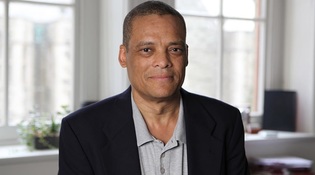
Yale University
Professor Larry Gladney works in two of the most bafflingly complex fields of science: particle physics and cosmology, in which the rules of physical existence as most of us know them run amok. His faculty bio notes that he “attempts to understand the origins of and fundamental connections between matter, energy, space, and time.”
Gladney came to Yale in January 2019, and here he added a third profoundly complicated field: helping the Faculty of Arts and Sciences make faculty hires based on ability, rather than culture, color, gender, or whom one knows. Gladney hadn’t been looking for a new post, but he’d been at the University of Pennsylvania for three decades. When the search firm approached him for the diversity job, he was reminded “that every so often you should look at your life and understand whether there are other things that you really want to do.”
Gladney still pursues his work in particle physics and cosmology. But now, one might say, he also attempts to understand the origins of and fundamental connections between Yale’s history and its apparent inability to attract and retain outstanding faculty who aren’t in the same social categories the university has favored for three centuries.
He has seen some failures. For example, one well-funded department hasn’t hired a woman in over ten years. He still meets people who will argue, without realizing it, that Yale can’t have both diversity and excellence. And some brilliant and successful faculty members believe they know every up-and-coming expert in their fields, yet tend to miss great minds in institutions they don’t frequent—a reliance on “pedigree,” he says. “It’s tough to get people to be more creative about thinking, Is there somebody at Mississippi State who is absolutely fantastic?”
When I spoke with him, Gladney wasn’t judgmental, just matter-of-fact. A large part of his job is helping faculty search committees to consider sources they aren’t used to considering. He doesn’t give diversity training, but he’ll start a discussion about how to open up the pipeline and find additional outstanding candidates. “What are the barriers, beyond bias?” he asks them. “Why is the pipeline limiting” the possibilities? He recommends looking harder and more broadly—at graduate students, say, or women academics who visit Yale to give talks. Although he won’t take credit, he’s pleased that the last two years have been “considerably better” in diversity. For example, a third of Yale’s hires in STEM have been women.
Gladney has written for this magazine about an experience that, in all likelihood, no white physics professor has ever had. He noted that all three of the essayists who wrote for that issue pointed out, without collaboration, “that we need to have more conversations that are painful. It’s been just too long that the nation has left painful discussions aside, because they’d rather think that we’re past it, or that this is something that was part of our history but isn’t part of our future.”
I asked him how the campus treats him, as a Black faculty member. He said, “The only real words for that are ‘blessed to be here.’ For me personally, it’s an amazing thing. I’m very glad about having made the move.”
 loading
loading